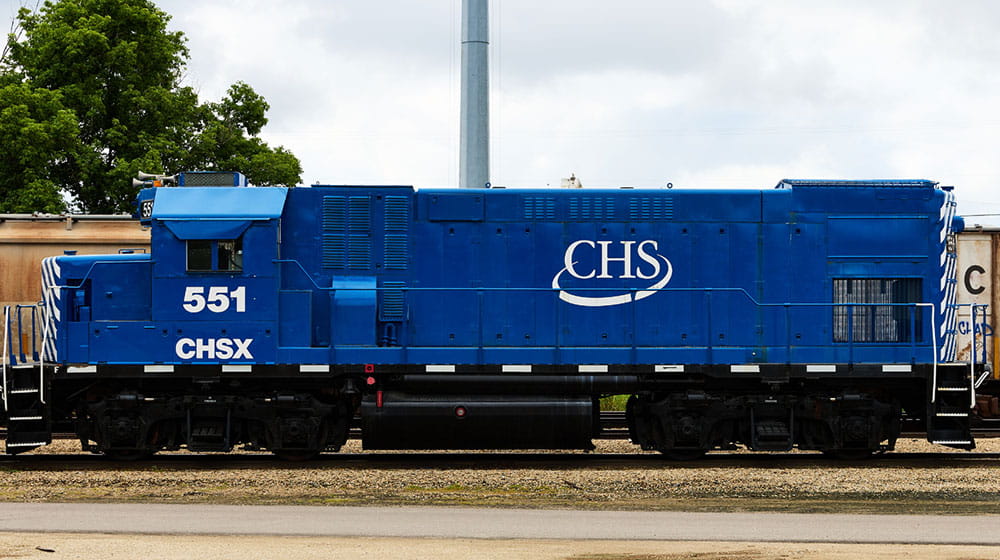Rail is one of the most efficient ways to ship grain, fertilizer, energy and other ag products. It’s a vital part of the supply chain that supports farmers and ranchers and the cooperative system.
In this episode of It Takes a Co-op™, Jackie Bailey, senior vice president of transportation with CHS, and Monica Freeman, director of rail transportation with CHS, examine the importance of rail in the cooperative system, how it fits in the overall transportation strategy and how cooperatives leverage rail to drive value for owners.
Bailey’s team works to standardize transportation processes for rail, truck, barge and ships to move ag products more efficiently.
“We’ve created a strategy to safely deliver products across the globe,” she says, “to ensure we're creating value for our customers and owners.”
Important link in the supply chain
Rail is a vital link in the cooperative supply chain, delivering crop inputs to co-ops for farmers and shipping energy products and grain to domestic and export markets. CHS is major shipper with its U.S. rail partners.
“We manage end-to-end supply chains to the PNW [Pacific Northwest], to the Gulf for export and to Mexico through rail. We also access feeder markets and the milling market,” Bailey says.
Modern train shuttle loader facilities, designed to move large quantities of grain quickly and efficiently, are a growing part of the industry. “Being able to unload a truck in three minutes at a location and load a unit train in 12 hours is important to serve our customers and our owners.”
Technology advances
Cooperatives and rail companies are investing in data-sharing technology to better track train locations, Bailey says.
“That full visibility allows us to be more predictive and planful,” Bailey says. “We have visibility to when an empty train is coming in, which allows us to arrange for labor to make sure we can load that train. It will allow us to ensure that we've got enough grain coming in to load it. And if we don't, we can move grain from one location to the other.”
Strong relationships
CHS has strong relationships with rail carriers, Freeman says. “We focus on that. It's important to us to maintain strong working relationships at every level,” she says.
Those partnerships keep ag products moving, she adds. “We want the railroad to choose us when they need to make a choice. Local crews are often constrained on time and resources and that can create disruptions in service. We want local crews to choose CHS when there's a choice between us or someone else requesting service.”
Rail’s future
Bulk commodities need rail to move efficiently, Freeman says. “I don't see there being changes to the way we utilize rail other than to say there are going to continue to be technology advances and efficiencies that help us ship [ag products] more efficiently.”




 Audio Clip
Audio Clip



